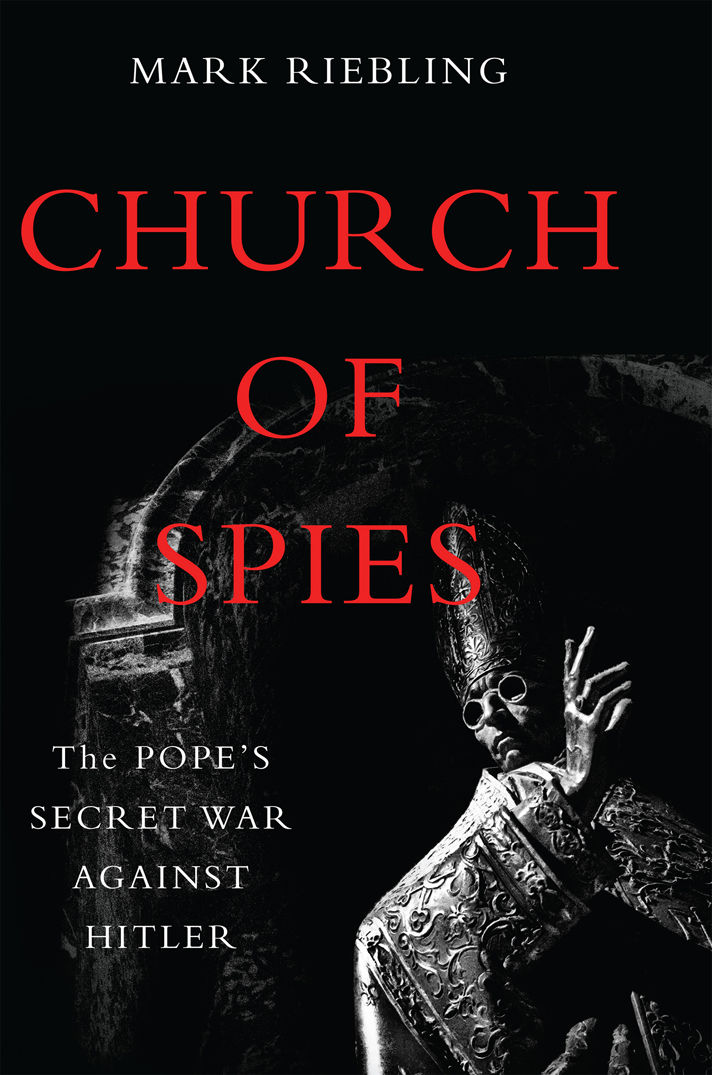
Church of Spies
The Pope's Secret War Against Hitler
کتاب های مرتبط
- اطلاعات
- نقد و بررسی
- دیدگاه کاربران
نقد و بررسی

July 15, 2015
Riebling (Wedge: The Secret War Between the FBI and CIA, 1994), an expert on secret intelligence, compellingly explores the papacy's involvement in espionage during World War II. Pope Pius XII (1876-1958) was a political pope, and his was a pontificate of war. He valued science and technology and prefigured many leaders by installing an audio spying system in his library. The Holy See was actually hardwired by renowned Italian electrical engineer Guglielmo Marconi. In 1940, the Vatican proposed preventing future aggression with an Economic Union of Europe. The key component was Josef Muller, a Bavarian lawyer whose legal resistance to the Nazis led Heinrich Himmler, after first arresting him for treasonous conspiracy, to invite him to join the SS. Knowing Hitler's hatred for Catholics, and particularly Jesuits, Muller agreed to join the Vatican in facilitating connections between rebellious officers and England. He acted under orders from Adm. Wilhelm Canaris, chief of German military intelligence, as a double spy pretending to undermine the Vatican. Canaris was part of a wide conspiracy led by Gen. Ludwig Beck. Muller's travels between Germany and the Vatican included liaisons with the "Orders Committee" of Jesuits and Dominicans and made him one of the church's most valuable spies, even after his arrest. The pope claimed that Muller's exploits in smuggling, politics, and confounding the Nazis "worked wonders." This book has much to surprise, especially the many German officers, separately and together, involved in attempts on Hitler's life. There were many other "decent Germans" who hated Hitler, but they couldn't betray their "fatherland." Pius, vilified by critics who believed he ignored Germany's atrocities, comes off as a politically savvy man who realized his interference would precipitate Hitler's mortal overreaction against German Catholics. Not only a dramatic disclosure of the Vatican's covert actions, but also an absorbing, polished story for all readers of World War II history.
COPYRIGHT(2015) Kirkus Reviews, ALL RIGHTS RESERVED.

August 1, 2015
Pius XII is sometimes referred to as "Hitler's Pope," and accused of worrying more about communism than the Holocaust. Riebling (Wedge: From Pearl Harbor to 9/11) asserts that instead of sitting passively while the Nazis ravaged Europe, Pius sponsored an intelligence network that sought for five years to assassinate Hitler. Rather than an organization in its own right, the Vatican spy network appears more like a loose association of the Pope's confidants who worked in conjunction with anti-Nazi groups that were comprised of religious figures and members of German military intelligence. The narrative's hero is Josef Muller, a German Catholic lawyer who served as a liaison between the Vatican and the German Resistance, and was one of the few conspirators to survive the war. VERDICT Clandestine organizations are hard to reconstruct and Riebling has mined an impressive array of archival sources to tell this fascinating story, although he tends to get bogged down in extraneous details. While Riebling tries to rehabilitate the Pope's reputation, he recognizes that the Pontiff's silence in the presence of genocide morally compromised him. Recommended for all libraries.--Frederic Krome, Univ. of Cincinnati Clermont Coll.
Copyright 2015 Library Journal, LLC Used with permission.

























دیدگاه کاربران